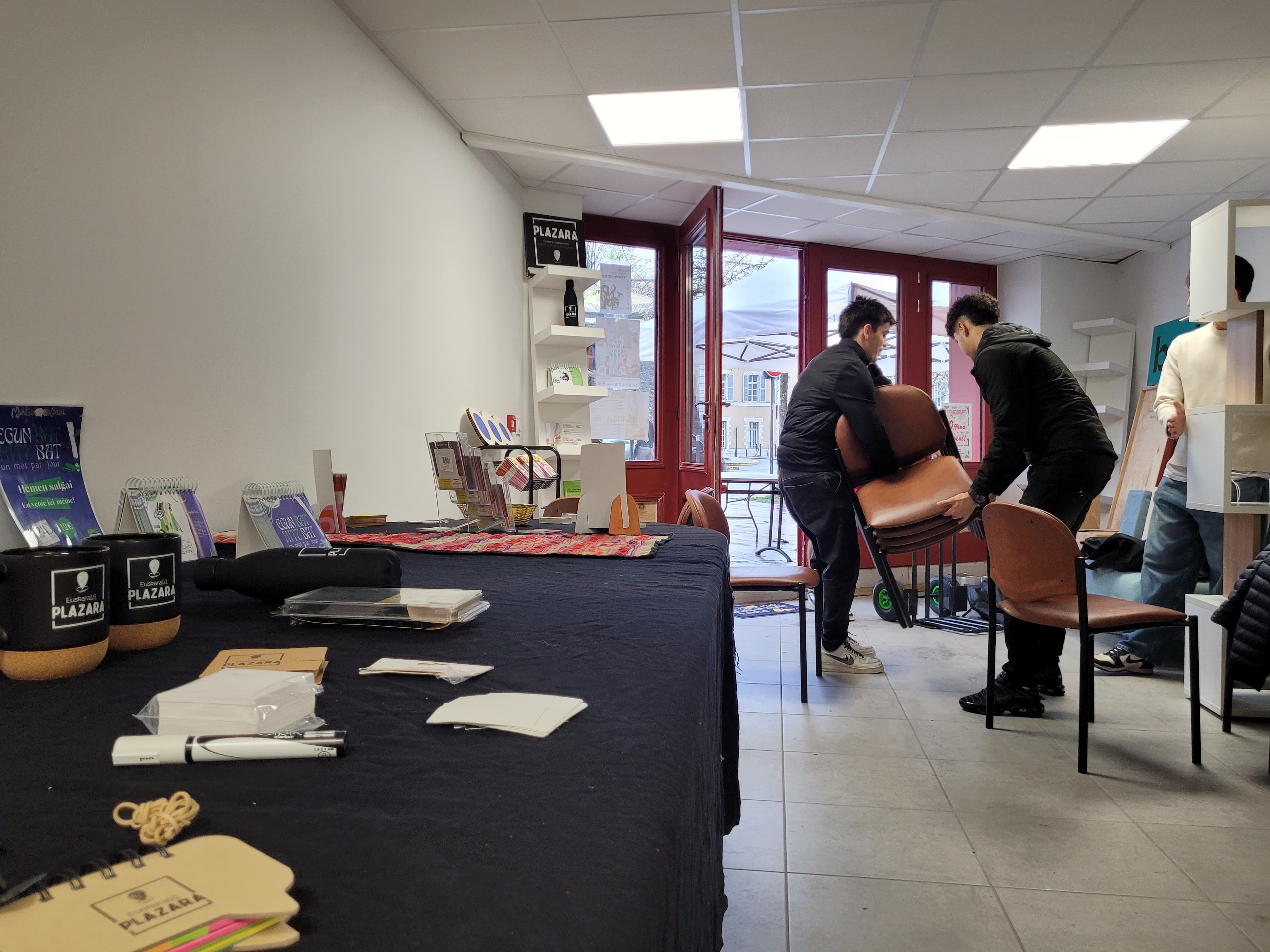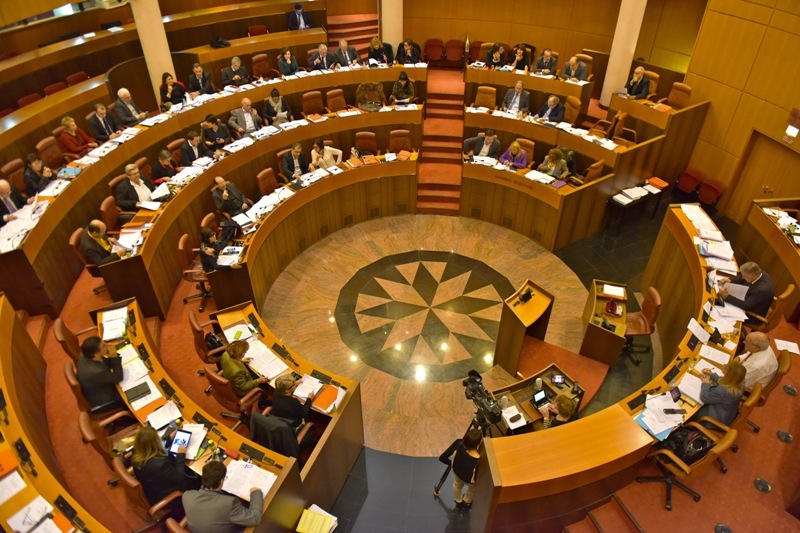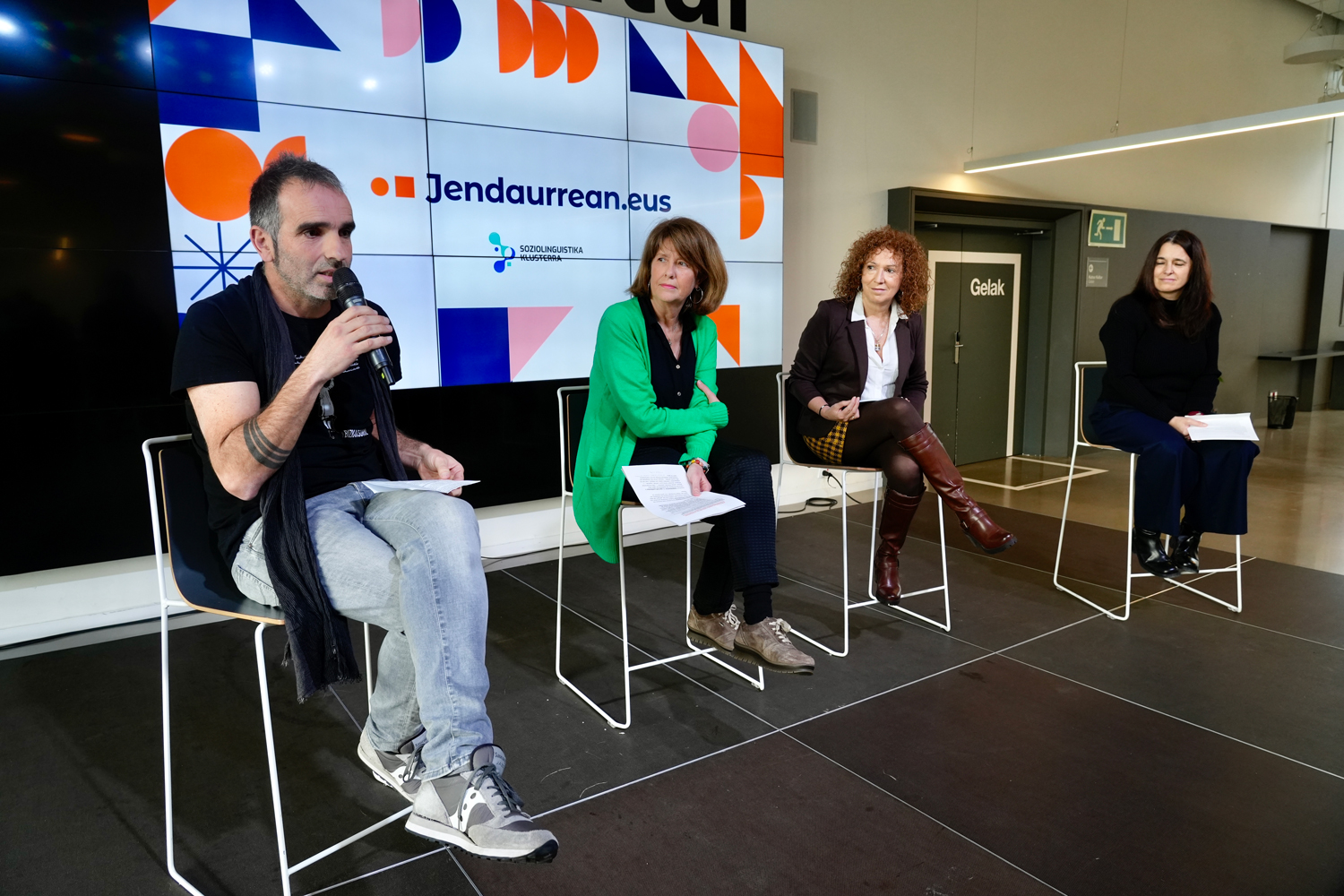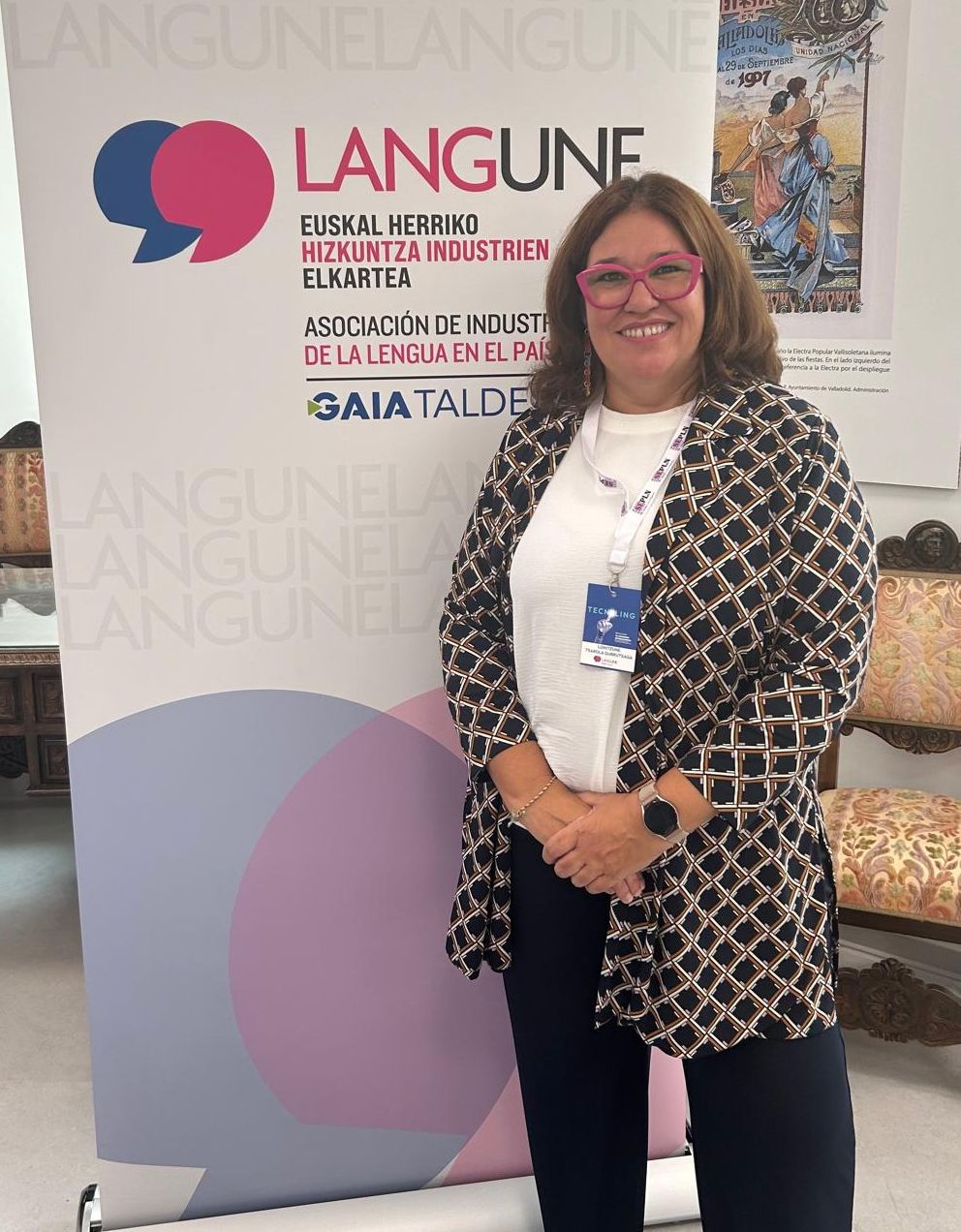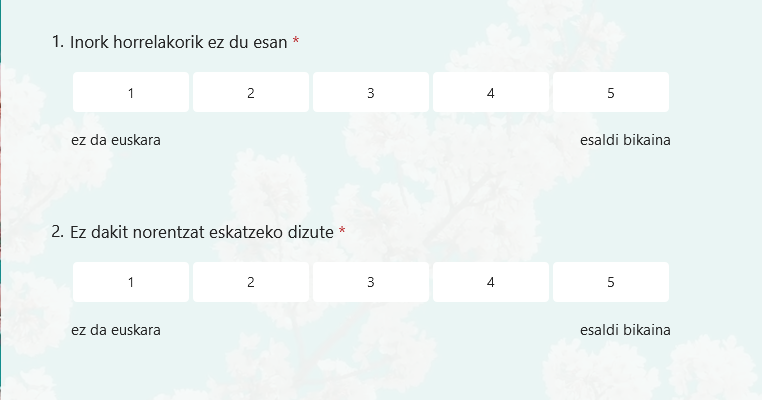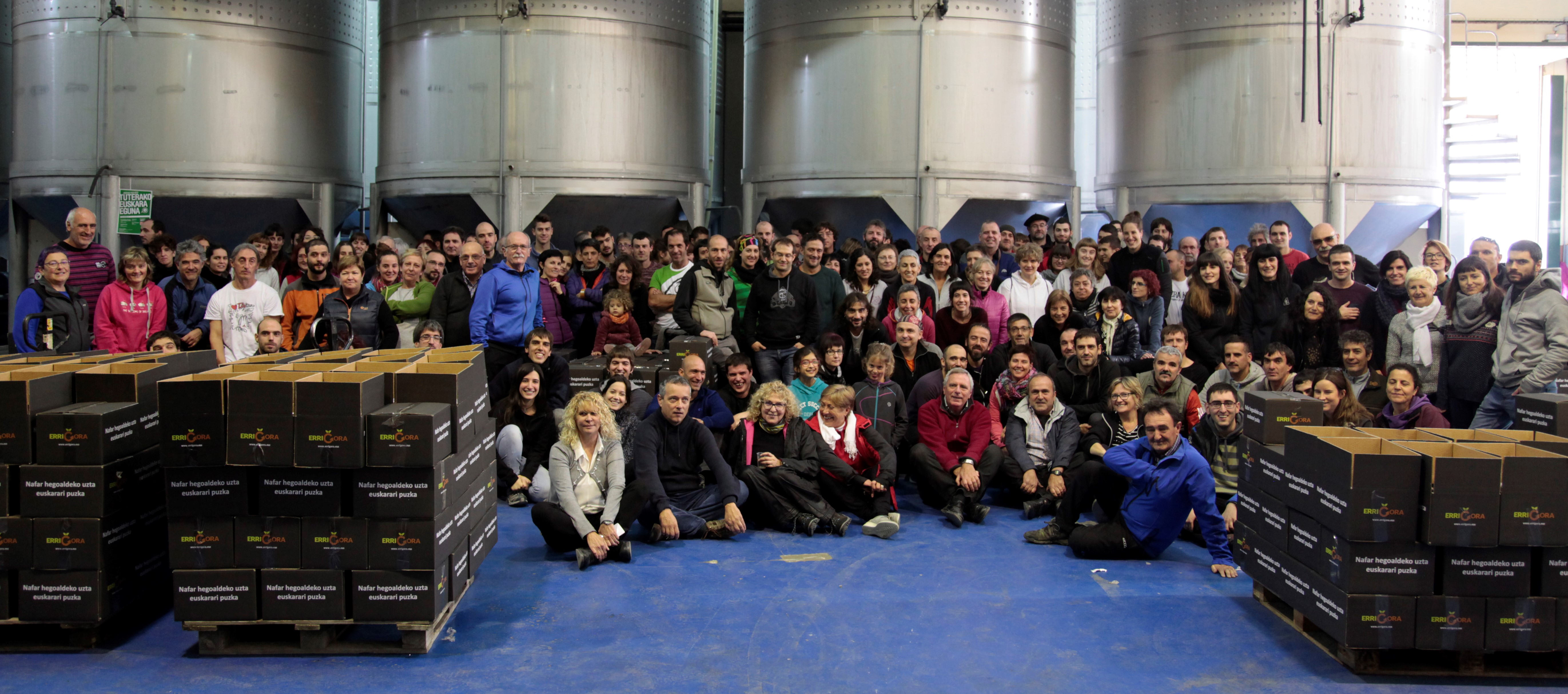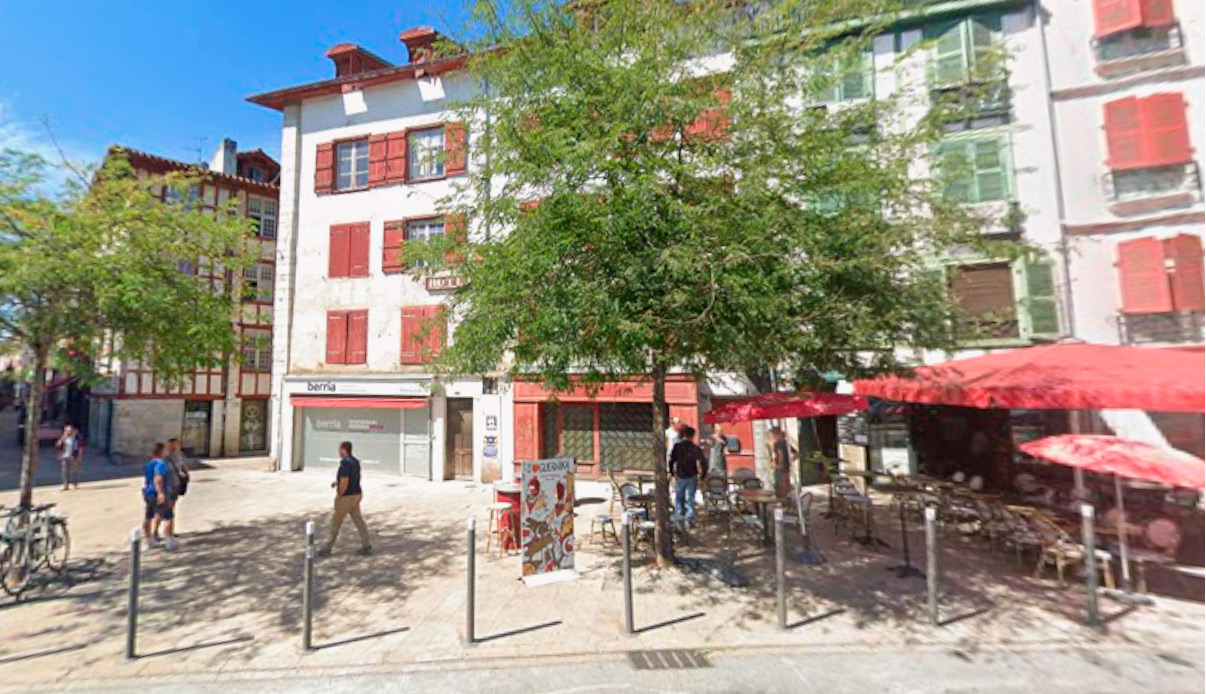"Euskaltzaindia is not a male chauvinist, but there is still a male academic"
- Despite being retired, the phonologist Lourdes Oñederra still has agenda problems and hopes to be able to attend the appointment. The chairman of the Euskaltzaindia Pronunciation Commission will take a holiday "for the first time", but he has taken some time to talk to ALEA.

The work of Lourdes Oñederra (Donostia-San Sebastián, 1958) has been for many years to teach phonetics and phonology at the UPV/EHU, but it has not prevented him from dedicating himself to other fields such as academic, artistic or fiction writer. Your passion is the pronunciation(s) of the language and the rule(s) about it, and even if you retire doesn't seem to leave it. He has spoken for a long time and in depth about Euskaltzaindia, about the sounds and pronunciations of Euskera, about its trajectory…
He was a student of Koldo Mitxelena, heir of Txillardegi... Wasn't it too important when I was young?
Only in the doctoral courses Koldo Mitxelena had a professor and thesis director; in fact, my thesis was the last directed by Mitxelena. Txillardegi did teach me during my career, gave us dialectology. I have never become his heir, but it is true that when I started teaching Basque phonology, one of our fundamental principles was the publication of his Basque Phonology.
He began working at the Faculty of Letters of Vitoria-Gasteiz in 1982. Since then, what are you more Gasteiztarra or the Donostiarra of Gasteiz?
Both of them openly. I like plurals, more than singular ones. I can't choose.
In 2007 he was appointed a member of Euskaltzaindia. What did that mean?
Fear. On previous occasions, I was told Hendrike Knor-and they would propose my name, but he did not. So I didn't believe it. It did not give me much joy, because for a linguist the normative practice is unnatural: being a linguist, he is interested in language itself, its variants, its variants, its speakers… And the norm and standardization, from the point of view of linguistics, is absolutely artificial. Another thing is to think that it is necessary, in a minority language, in the situation in which the Basque country finds itself, even more so, but I will not say that I took it to taste.
"It's very difficult to make rules; nasty to a vocational linguist."
Can you say that in recent years Euskaltzaindia has taken another path? That is, from normative to observing the evolution of the use of language?
Since I entered, I have always seen that Euskaltzaindia hears what is used, that there are few things that are completely banned and that the council becomes the norm when they have succeeded. I want to believe that this is the case. It is precisely the changes that generate so many complaints that refer to that, to look at what happens ... I would like to believe that it is always. I guess there will also be mistakes... It is curious how you are asked to solve the problems in the face of the doubts that make us uncomfortable, but we like each one to bless our opportunity. Normative production is very difficult; in addition, unpleasant for a vocational linguist.
As a member of Euskaltzaindia, he has freely criticized the decisions made, such as the male and female division of the names that Euskaltzaindia wanted to regulate...
Yes, that would put it among the mistakes we have mentioned now. By the way, I would like to make it clear that I was not the only one who protested. The other linguists also opposed it. You know, in Euskaltzaindia, we're not all linguists. That is good in itself, because it is reflected in the society of vasco-speakers. This is the case in other language academies. On the other hand, a big problem arises because linguistic criteria are not necessarily the winners in some decisions, that is, the quality of the language itself is not taken into account due to lack of knowledge. Something similar happened when over the "houses of culture" preference was given to "houses of culture". The morphological and phonological function of the elimination of the "-a" in the Basque composition was not taken into account, because nobody remembered the morphology, surely... I would say something similar happened with the genus of names.
Is Euskaltzaindia still a male institution?
It is not a male institution, but there is still a male chauvinist among academics, who have no awareness of the machismo of ideas and attitudes they consider normal. I had to say that there are also feminist members, but it would be too easy to imagine a line that would put women back and forth. Society and history are the ones that we consider to be feminists, we also need to improve. Feminism is lifelong learning, but they have not yet learned the first lesson that feminism is to give advantages to women (I should believe). Unfortunately, yes, there is something like that among Euskaltzaindia scholars.
It began in 1993 in terms of pronunciation and believes that it has more to do with theatre than with grammar or any other field.
Looking on the normative side in 1993! For the rest, as a professor and researcher, he had spent more than a dozen years on it. I suppose that is why they would call me when the Euskaltzaindia Pronunciation Commission was launched in 1993... The idea of partnering with theater wasn't very successful then, and it's still hard to understand in the academic world. In short, it's about pronunciation being something that starts in the mind and is done with the body, like representation. Grammar and vocabulary are learned by memory and stored in the head, and then go out through pronunciation, especially, or not. Those who learn Euskera or, starting from a dialect, those who learn the batua, we have to learn to sing, to represent, to put words into practice according to a score we did not have.

In 1998 the Norma de Pronunciation Cuidada del Euskara Batua was published, at what point are we after we have done the work?
Instead of explaining it and understanding it well. You have to put it in context and think about what it was done for. It has not aged as much as the long series of years that have passed could do. In fact, if you read the preambles and other articles that came out that year, I would say that it has not lost its present. Perhaps we can better explain some details. But what matters most is that the rules given here should not learn or teach as an imperative that we learn from memory, and what is very important is that, along with careful language, we have to keep other languages alive. Careful and carefree language is absurd and vice versa: a way of further impoverishing the language of poor speakers. For the Basque language to be an entire language, entire speakers are needed, which means that records must be more than one. At least we should be on it.
With accent, you said that, instead of pronouncing the letter, you would have to "sing" for phrases or groups of words, is there any way to systematise it?
The essence of rhythm in Basque is not in accents, but in syllables. In the courses taught by Julia Marin, in the studies carried out in theatre schools around the world, people have appropriated themselves to give a phonic reality to words and grammatical structures. Grammar or dictionaries are different methods than the ones commonly used to learn, but they're methods and they have their own systems. By orally saying the words and structures learned from memory, students often give an accent per word, which is considered the unified language or that of the Euskaldunberris. We must overcome that if possible, we must also open the way for new speakers to adopt old melodies and rhythms. To do this, surely the experts in theatre, singing, etc. They are more appropriate than linguists and philologists, and that is that we too should learn from them if we want to be a full-language teacher.
You complain that Euskaltzaindia has not paid enough attention to the pronunciation...
Neither Euskaltzaindia nor any other academic area, including linguists, unfortunately. As if the importance of the body takes away weight, in the mindset of many intellectuals. It's hard to learn and teach pronunciation because it's different. It's more convenient to talk about texts, grammar, etc. Their pronunciation is vivid and imperceptible, always changing. On the other hand, as far as education is concerned, it is often practiced as if it could be learnt by itself, grammar and dictionaries for examinations are worked out, with the exception of exceptions. It is not an exclusive disease of the Basque Country, but in the case of the Basque Country it may have more serious general consequences than in the case of the German. It is true that with the mastery of grammar and vocabulary, the speaker is able to say things. Yes, but how? In Euskera, moreover, as phonemes do not separate too much from the shapes of the letters, well... it seems that the pronunciation comes for free. But look, if you get the student to look at the sounds "difficult" ("tt", "z/s"), worse! Not only do the sick not content themselves with the fate, but they scream! It will start to stutter and the tongue will be hard or terrible for you. Through reading texts, accents and rhythms, sounds, dictionaries and grammar can be represented.
You have said that there is a ‘breakdown’ of the Basque Country and that, at the same time, no more rules are needed. How does it combine?
I have said this about the rules of pronunciation, but I would dare to think that in others it is better for the rules to be understood as little as possible, but well. A speaker, instead of complying with many standards, tries to keep all those standards in mind as best as possible, is not free to use and use language as a tool of his own. He is in a way the instrument of language. Asking for more rules reminds me to put more issues for oppositions, complicate things to show I don't know what? I believe that the rules are particularly dear to teachers and examiners. We should all make an effort to truly learn another language to live it. It is true that the rules also give certainty, in order to make the way, but what happens is that they are well understood. The most basic aspects of pronunciation (diversity of levels, rhythm, variability) cannot be learnt in regulations.
He has worked in academia, but also in fiction, now that he has retired he will resume this facet?
I've never completely abandoned it, but it's true that I retired to be able to write grossly, with great pity of leaving the classes. About ten or ten years ago I was diagnosed for the time I need to take care of a small health problem, I did not get those minimum hours to work the texts throughout the week, even on weekends! I can do something, but I also have a phonology book pending...
Lau egunez idekia izanen den merkatu bat antolatzen du Plazara kooperatibak euskararen aldeko beste hamar bat eragilerekin –horien artean ARGIA–.
Korsikako legebiltzarkideek ezin dute Korsikako Asanblean korsikeraz hitz egin, Bastiako Auzitegiaren 2023ko epai baten arabera. Ebazpen horri helegitea jarri zion Asanbleak, baina debekua berretsi du orain auzitegi berak. Epaiak tokiko beste hizkuntzei eragiten diela ohartarazi... [+]
Many times, after looking at the brumas from my house, it has occurred to me not to catch umbrellas, even though I know I will just soak up. Why will it be? Maybe you don't want to catch the umbrella? Maybe in the hope that I don't get wet? Nevertheless, the conclusion has always... [+]
I remember when I was 16 years old, the Ertzaintza first identified me in a concentration in favor of the Basque Country before the Bergara courts. We believed that in Euskal Herria it was legitimate to cry for the Euskaldunization of the courts, but then there would also be a... [+]
Andoni Urrestarazu Landazabal was born in the village of Araia on 16 July 1902 and died in Vitoria on 21 November 1993. It is now 31 years old and I think it is time to recognize his name and be, because the legacy he left is not well known. Umandi used the name of a mountain in... [+]
“You learn walking and singing.” This has been one of the subjects this week in the groups of C2. It wasn't about learning to sing or walking, it was about using the future correctly. The activity has given me what to think and I've wondered how we learn to teach. I've heard... [+]









